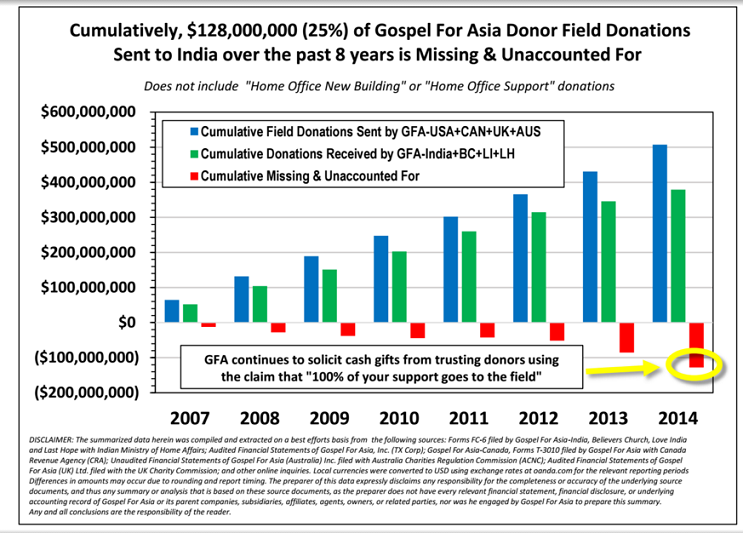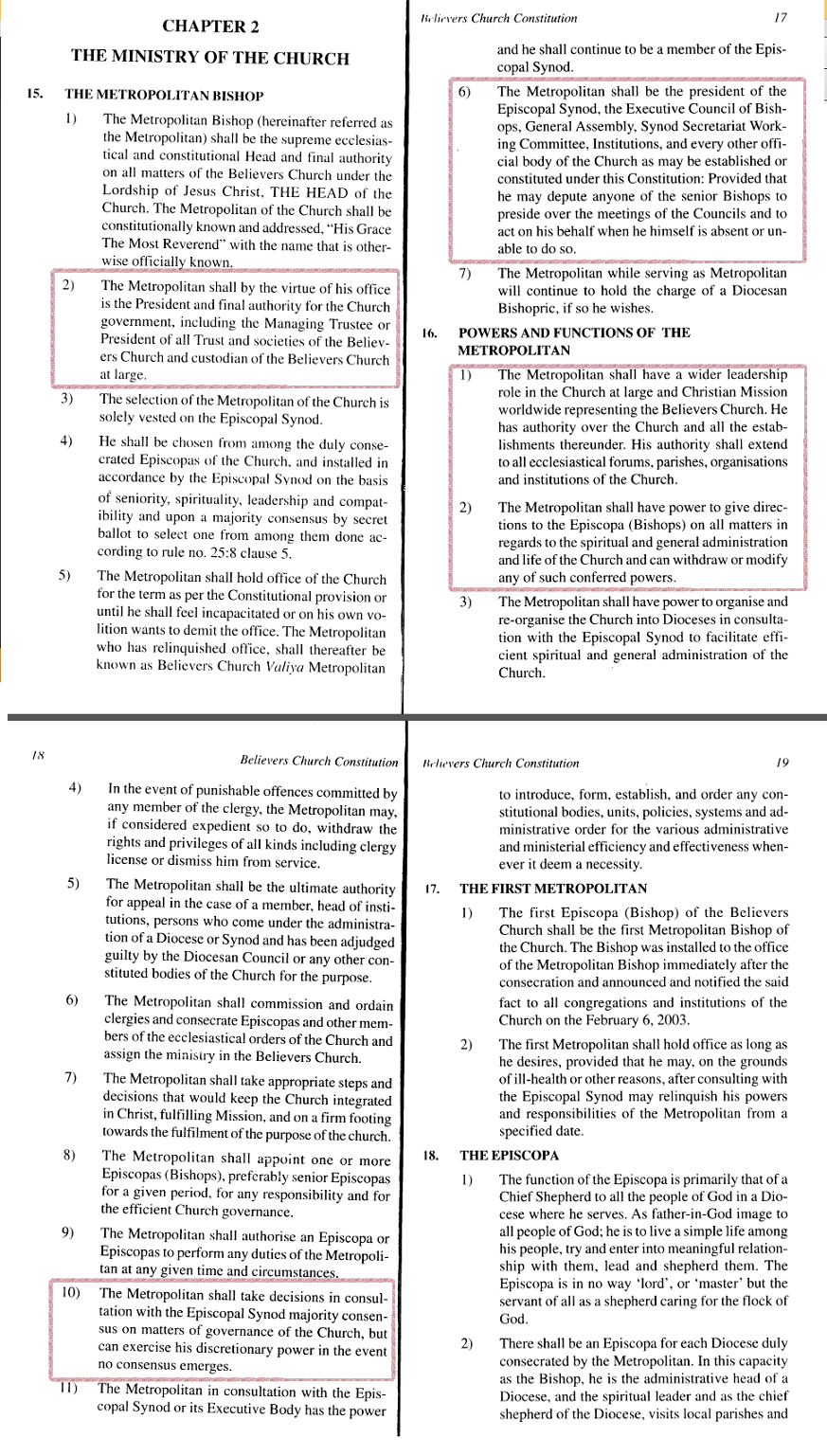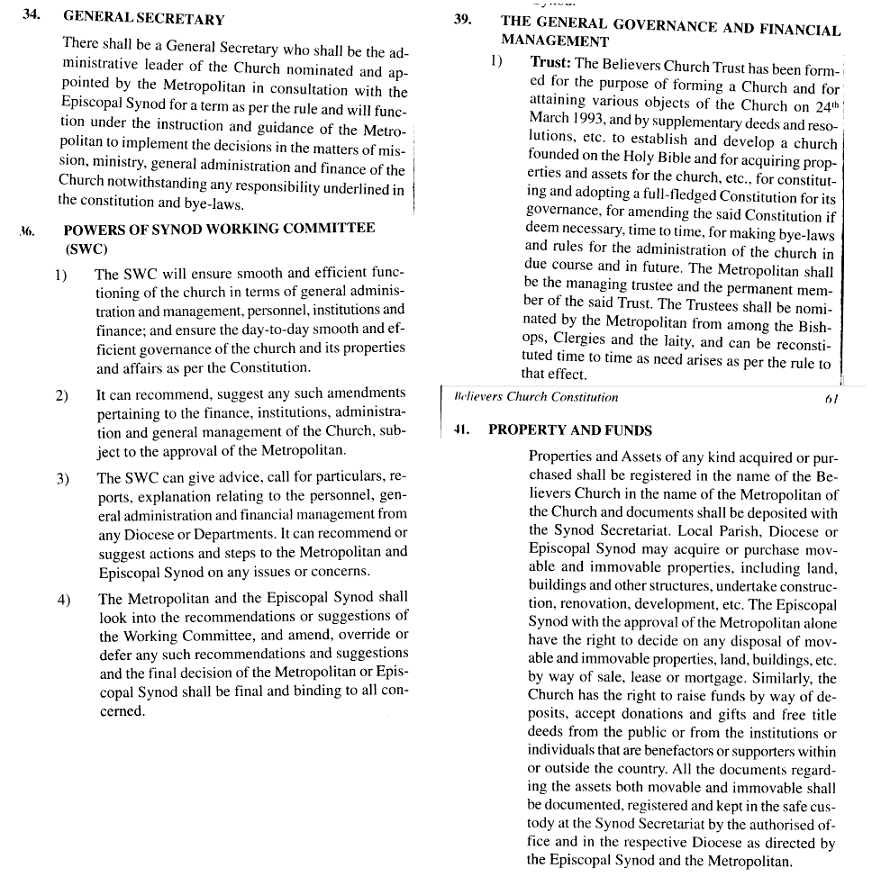In May, David Carroll and K.P. Yohannan told Gospel for Asia staff the following about smuggling cash to India:
David Carroll: A couple things you should know. We would never endanger students or anyone else, we’ve had pastors carry money, we’ve had staff carry money, we’re always looking for ways to get money into India because the reality is that it’s getting more difficult to do that, and we are looking for other ways that we’re able to do that. But we checked with our auditors before we ever would allow such a practice. We actually called Bland Garvey, they’re our audit firm and said this is what we’re planning to do, this is what we are intending to do, and they told us how we get it receipted they said it’s completely legal, you’re under all limits, you need to get receipts, there need to be receipts here, there need to be receipts there which Lori has receipts from here. The Indian side also account for that money as received. If you were to lose it, they couldn’t receive it, and in that case, we would say it’s lost basically. We would have to tell the auditors we gave it and it didn’t get to the other side and I’m sure they wouldn’t be very happy, but is it receipted on the other side as received, and accounted for? Yes, it is on the other side of the pond.
So, we have stopped that practice, we feel that it put more emotional burden on people than we realized and then we wanted to and so…
KP Yohannan: It is a perception problem also. Like when I go to Burma and Nepal, I carry quite a lot of travelers checks and get into the country and cash it into local currency and I give it and then the border department, they account for that money in the local Burmese currency or wherever I’ve been to so (?). It’s a legal thing, you cannot carry any more than $5000 and not declare it but when you get India, Nepal, Burma, you can cash it, you can burn it, you can eat it, you can throw it away, you can give it, it is a local currency you are giving it and so receipts are accounted in the book are reported to the government (?) and that is an absolute thing because what I am trying to say, it’s not trying to be under the radar, or illegal smuggling money into the country, nothing like that.
Carroll: We had heard that one explanation you were given was that the tax rate is high, which would indicate that we’re trying to avoid tax on the money and that’s not the case. I’m sorry if that got skewed but that’s not the case. It’s actually reported on the other side legally so we can do everything we’re supposed to do in reporting that money to the Indian government.
Yohannan: But we don’t do that anymore.
In essence Carroll and Yohannan claimed that carrying undeclared cash in groups was legal but GFA stopped it because the practice put too much emotional burden on staff and students.
During last night’s Gospel for Asia segment on CBS 11 News Dallas, Carroll said the practice was stopped as soon as leaders found out it was illegal. In fairness to Carroll, his words were paraphrased by the reporter.
“We have never willfully broken any laws,” said Carroll, adding that taking the cash-filled envelopes into India was an innocent mistake meant only to help the needy in that country. He said the practice was stopped once the group realized it violated federal law.
“We just never knew … we maybe should have done a better job asking,” Carroll told the I-Team.
Compare these words with what Carroll told staff. When and why did they stop sending cash via students to India?
At one point, David Carroll told me flatly that GFA had not broken any laws and then declined to reply to my email requests for information. Perhaps, he should have taken my questions more seriously.
According to the CBS report, the nearly $20 million diversion of funds from India to help build the Wills Point campus was given from the general fund of an Indian group.
Several former members told the I-Team they also disagreed with GFA moving more than $19 million from India to finish paying off the new headquarters near the Kaufman County town of Wills Point.
But Carroll responded by saying the Christian group did nothing wrong because the money came from a general fund that could be used for various purposes, and not just for work “in the mission field” in India.
It was tapped, “I believe, knowing that campus one day probably would return many times in what they’d invested.”
In May, Carroll and Yohannan told staff.
David Carroll: There is, I don’t want to call it a rumor, a story, an inquiry about, what about the $19 million anonymous gift that was given for the campus back a year or so ago? What’s that all about? Did that come from the mission field, from field funds? So I want to explain that gift to you so that you know.
In about April of 2013, as we were building the campus here, we were running pretty critically short on money. We went to a bank at the time, City Bank of Texas, they’re located in Lubbock. Many of you might remember, we were still at the other building and A group of 11 bankers came, talk about a room, 11 bankers and an accountant and John [Beers]. That’s 12 bankers and an accountant. That was a rip-roaring time. Anyway, um, they came interested in our project to loan to it. So we brought them out here, we showed them the whole thing, we explained our vision, and actually we were working toward finalizing that loan, we were at the place of getting terms from them and when we realized the cost of the loan, Brother KP mentioned it to some of the folks in Asia and mentioned that we were not able to do any better than that. We couldn’t, we would loved to have borrowed money from one of the Asian banks cause actually it’s much better terms, it would be much less costly, we weren’t able to do that being a foreign corporation.
And so, what the people in Asia did, and it is a board that is under Believers’ Church umbrella, but Brother KP’s not on that board, it wasn’t his decision. The decision was made by them that since GFA North America had sent so much money to us from undesignated field funds, where needed most funds over the years, and since this campus to us is seen as an international headquarters which will be leadership training, it will be RYPs, which are always fruitful for the field, every time we have an RYP, the field tends to benefit from that. It will save the ministry somewhere between 4 and 5 million dollars a year when we’re at capacity here which is about 350 people. When that happens, we’re going to receive a lot of that extra money back and so they made the decision while we were in that bank loan process, that rather than go with that bank loan, we would like to make an anonymous gift for the campus fund. And they did that.
Was it field funds that should have gone to Nepal for earthquake victims or
K.P. Yohannan: – (Unintelligible)
DC – I was just getting to that.
KP – Sorry
DC – That’s fine. No, it wasn’t. But what they did on the mission field is they actually took a loan from one of their sources to replace that money so they could use it for the purpose it had been designated for there. So in essence, they got our loan. There are several income producing entities in Asia. That’s why partly why we have 35% of our church is self-sustaining, by God’s grace now in Asia. And they felt they could pay that loan off very very quickly. They made that decision to give us that money and they wanted it to be anonymous. And I’m a little sad that it’s not anonymous, but I did want to explain to you where it came from, and the reasons behind it, and so, in their minds it was an investment.
KP – It’s legal.
DC – It’s completely legal, thank you. There’s a board member, board documents as I understand it, I don’t live in Asia, but there’s board documents on the other side. The whole thing was done in complete legality.
Was the nearly $20 million a transfer from Believers’ Church general fund or a loan taken out by BC or a BC affiliate?


